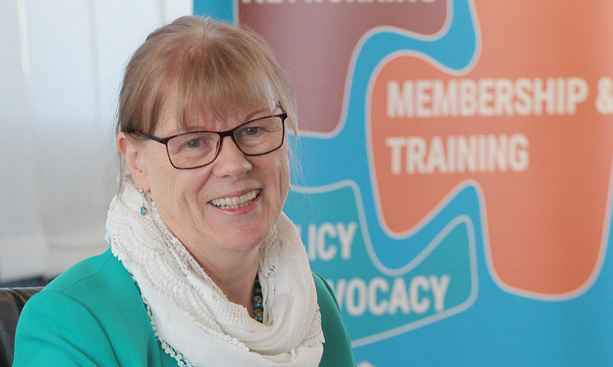Business Botswana (BB), the private sector representative body`, has admitted that the sector has been hit hard by Covid-19 but will bank on their recovery plan to spur it up.
The private sector recovery plan follows shortly after government launched its economic transformation recovery plan worth about P20 billion.
The private sector recovery plan is also supported by the United Nations Development Programme (UNDP) in Botswana led by its Resident Coordinator Jacinta Barrins who has assured BB of strong backup.
CEO of Business Botswana, Norman Moleele, said the private sector has lost a lot due to the Covid-19 pandemic.
“The losses that the private sector incurred are not yet quantified but it is a devastating without doubt. We anticipate that the recovery plan once put in action would mitigate against the damage caused by Covid-19 to a wide range of businesses within the private sector,” he said.
According to Moleele, the recovery plan intends to position the private sector becoming the driving force of economic development by being a key player in sectors such as agriculture.
“Covid-19 has ruthlessly exposed the vulnerabilities of our economy and society. We do not produce ample food to feed the nation. We do not make enough of what Batswana need in their households, or what firms themselves need to produce goods and services,” he added.
He noted that as Business Botswana they are keen on fostering new opportunities that would unlock more commercialisation value singling out the research and tertiary institutions.
Moleele highlighted that institutions of higher learning such as University of Botswana (UB) and Botswana International University of Science and Technology (BIUST) are very significant; saying partnerships between them and private sector players are crucial l in transforming the economy.
“The relationship between the industry and institutions of learning cannot be underestimated. We recognise the commercial value of the research and development projects that these two universities are pursuing and we will court private sector to adopt them,” Moleele highlighted.
UB Vice Chancellor, Professor David Norris, reiterated his institution’s desire to partner with the industry to commercialise their R& D initiatives.
Speaking recently while receiving P100 000 cash donation from the Chinese Chamber of Commerce, Prof Norris said UB enters an entrepreneurship trajectory linking with private sector.
He maintained that the university is keen to partner with the industry in order to promote economic diversification as their new strategy directs them towards being diversified as well.
Meanwhile, Resident Coordinator of UNDP in Botswana Jacinta Barrins said UNDP is keen on working with the private sector by capacitating its growth in its drive to help diversify the economy.
Covid-19, Barrins said, has highlighted how vulnerable the economy is, and as such, has exposed the gaps in social protection systems for economic actors, workers and employers.
“This also opens up for the question as to whether it may be the right time to put in place an unemployment insurance scheme. The plan also advocates for the use of local resource-based methods (LRBMs) and technologies,” she said, adding that women businesses will be aided too.
The private sector recovery plan follows shortly after government launched its economic transformation recovery plan worth about P20 billion.
The private sector recovery plan is also supported by the United Nations Development Programme (UNDP) in Botswana led by its Resident Coordinator Jacinta Barrins who has assured BB of strong backup.
CEO of Business Botswana, Norman Moleele, said the private sector has lost a lot due to the Covid-19 pandemic.
“The losses that the private sector incurred are not yet quantified but it is a devastating without doubt. We anticipate that the recovery plan once put in action would mitigate against the damage caused by Covid-19 to a wide range of businesses within the private sector,” he said.
According to Moleele, the recovery plan intends to position the private sector becoming the driving force of economic development by being a key player in sectors such as agriculture.
“Covid-19 has ruthlessly exposed the vulnerabilities of our economy and society. We do not produce ample food to feed the nation. We do not make enough of what Batswana need in their households, or what firms themselves need to produce goods and services,” he added.
He noted that as Business Botswana they are keen on fostering new opportunities that would unlock more commercialisation value singling out the research and tertiary institutions.
Moleele highlighted that institutions of higher learning such as University of Botswana (UB) and Botswana International University of Science and Technology (BIUST) are very significant; saying partnerships between them and private sector players are crucial l in transforming the economy.
“The relationship between the industry and institutions of learning cannot be underestimated. We recognise the commercial value of the research and development projects that these two universities are pursuing and we will court private sector to adopt them,” Moleele highlighted.
UB Vice Chancellor, Professor David Norris, reiterated his institution’s desire to partner with the industry to commercialise their R& D initiatives.
Speaking recently while receiving P100 000 cash donation from the Chinese Chamber of Commerce, Prof Norris said UB enters an entrepreneurship trajectory linking with private sector.
He maintained that the university is keen to partner with the industry in order to promote economic diversification as their new strategy directs them towards being diversified as well.
Meanwhile, Resident Coordinator of UNDP in Botswana Jacinta Barrins said UNDP is keen on working with the private sector by capacitating its growth in its drive to help diversify the economy.
Covid-19, Barrins said, has highlighted how vulnerable the economy is, and as such, has exposed the gaps in social protection systems for economic actors, workers and employers.
“This also opens up for the question as to whether it may be the right time to put in place an unemployment insurance scheme. The plan also advocates for the use of local resource-based methods (LRBMs) and technologies,” she said, adding that women businesses will be aided too.
